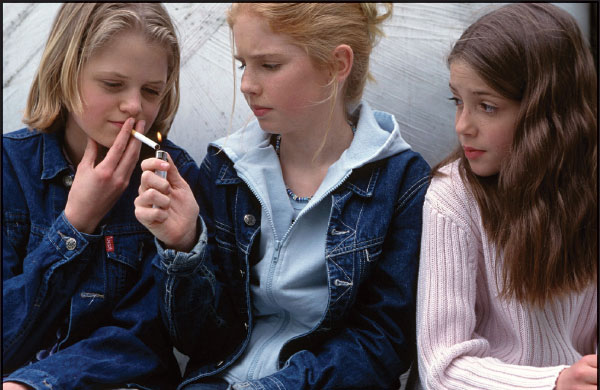
More and more families, especially those living in Brooklyn and Manhattan, are choosing to make Deal their new home, and choosing Hillel Yeshiva as their new school.
It’s easy to understand why. Day-to-day life in Deal is easy. It’s beautiful. It’s safe. It’s fun. Equally important, the Deal atmosphere provides families with a sense of purpose and a nurturing environment in which to live. The close-knit community fosters spiritual growth for families, and the relationships that are born within the community are so strong, that “family” is a word that extends to friends and neighbors.
From the moment they arrive, new residents in Deal are welcomed with open arms.

Rabbi Saul Kassin, Rosh Yeshiva – Halachic Authority, moved into a home in Deal on a Friday afternoon. He recalls the flowers, cake, wine, and freshly baked challah that neighbors brought over to his house on that first afternoon.
“To have community friends that have the sensitivity and the thoughtfulness to do something like that was wonderful.” As well, “Our children have been able to find and connect with great families and people to spend time with on Shabbat and on the holidays.”

That sense of friendship is also evident at Hillel Yeshiva. Many credit the school as providing their children with an exceptional nurturing educational environment.
At Hillel, each child is viewed as a unique individual. The school is intimate and flexible enough to provide every student with the activities, level of instruction and support that they need. For those students who are ready for significant academic challenges, Hillel High School offers eight advanced placement courses for qualified students.

One of the core programs that Hillel is especially proud of is “Parents as Partners,” where parents are invited into the school to observe their children in action. Hillel recognizes the importance of creating a connection between families at home and life at school.
Teachers and administrators at Hillel understand that the classroom should be both challenging and nurturing, educational and fun. Class sizes are kept small to ensure that each child has an opportunity to participate. Judaic education is integrated with general studies topics to reinforce and develop the “whole child.”
Jennifer Dayan is thrilled that Hillel integrates the teaching of Hebrew into the Early Learning Center curriculum. “My son, who’s in nursery school, is already telling me all the parts of the body in Hebrew,” she says.

Jennifer also praises “The Gruss Lab,” a computer program available to all elementary school students that charts individual students’ progress and provides extra assistance in areas the student may have trouble with.
“It’s so impressive to watch my first grader,” she says. “My daughter has her own computer and headphones, screen name and password. The program asked her a variety of questions and figured out what area she was weak in, and then explained the things to her so she could understand.”
Leon Silvera has lived in Deal, where he has raised his three children, for 34 years. He served as Hillel’s first High School Chairman of the Board of Education. “My children, and now my grandchildren, have always had everything they needed here—sports, and other extracurricular activities at Hillel,” he says. “What was most beneficial to them as they grew up was a setting that wasn’t intimidating.” Hillel parents love the inclusiveness of the school. Hillel is a true community school, with students coming from throughout the area—and from families who are committed to the school becoming a vibrant part of the growing area.

Paulette Jemal raised five children in Deal, three of whom are now married and two who have children of their own. “I could walk into school today and a teacher will ask me about my daughter that graduated from college eight years ago,” she says. “It’s amazing.” In fact, Paulette’s son Norman currently serves as the Hillel Alumni President.
Ellen Sutton, a mother of three who moved to Deal from Brooklyn in 1999, says that the bond she has made with her friends in Deal transcends any ordinary neighborly relationship. “My mother lives in Brooklyn, and my in-laws, who live in Deal, often vacation in Florida,” says Ellen. “So, my emergency contacts, who are normally my family, are now my friends. In Deal, your friends become your family. All the newly married girls got together and set up a weekly card game,” Ellen adds. Like the friendships established in her first days in Deal, the card game is as strong today as it ever was—every week at a different home, women prepare and serve gourmet lunches and catch up on the week’s events. On any given day, you can also find women throughout Hillel keeping active by volunteering for the PTA, participating in Mommy and Me, attending weekly classes or getting together with friends to plan new programs.
Ellen’s experience is shared by most residents of the Hillel Yeshiva community—friendships that are quickly and easily established are sustained by a common bond.
Shelly Antebi owns a successful ladies’ wear business and must frequently commute to New York. She is grateful for the strong network of friends she has in Deal who are always available to help her out on a moment’s notice. Shelly moved from Brooklyn to Deal in 1986 with her husband and two children (she now has five).
“Whenever I need to go to the city, there are 10 women happy to have my kids over for dinner,” she says. “Throughout all the years when my kids were babies, if my husband and I ever needed to go out of town on business, I had a network of friends who would take over for me for two weeks.” She calls this strong family-like nature “the best part about living in this community.”
While Shelly may cite her network of friends as the “best part” of living in the shore community, it certainly is not the only benefit for Deal residents.
Days in Deal are full of interesting activities for the entire family. Hillel Yeshiva is often the focus of these events; the regular school day is enhanced with countless afternoon, evening and weekend activities that keep children and their parents busy and engaged.
After each school day, a bus takes elementary and preschool students to the Jewish Community Center (JCC) of Monmouth. There, the students have access to two full gymnasiums, an indoor and outdoor pool, as well as performing arts programs.
“All of my children take advantage of the afterschool activities at the JCC,” says Ellen Sutton. “I think it’s a great opportunity for them. The sports activities are especially well-needed for my boys at such a young age.”
A relatively new organization also provides exciting activities for children and families. The Deal Sephardic Network (DSN) was created by a group of community members so that their children could have engaging activities available to them. Jackie Ashkenazi, a father of four, calls the DSN “the best thing that’s ever happened to Deal.”
The Deal Sephardic Network offers children a unique chance to socialize on Sundays, with activities such as arts and crafts, cooking, and science experiments. The DSN also allows children to create and organize their own programming. Jennifer Dayan’s daughters, both in middle school, are currently working with their peers, organizing their own activities schedule. “They’re letting kids think of and organize things to do,” she says. “It’s a great experience—it gives them responsibility and teaches them leadership.”
Jackie Ashkenazi helped launch a DSN baseball league last year. He phoned every child in the area to ask them if they wanted to play in the league. It was a huge success. Jackie started the baseball league from nothing and expects that next year, the league will have 100% participation from kindergarten through 8th grade.
Says Jackie, “We had trophies, uniforms, umpires, and sponsors; everyone wanted to be a part of it.” The league was inclusive of every child who wanted to play. Teams were matched up so fairly that the team in last place at the end of the season ended up winning the league’s “World Series.”
Adults, too, are always busy in Deal. “I’m never bored here,” says Paulette Jemal. Paulette considers herself an especially active person, participating in dance and exercise classes, tennis leagues, and in the Sephardic Bikur Holim, which provides community service opportunities to Deal residents and their families.
Paulette has owned stationery stores both in Deal and in Brooklyn for the past 10 years, and, like many others, often commutes to New York. “Not a day goes by when someone doesn’t ask me ‘When are you going to move to Brooklyn? I say, I love it here.”
What draws families to Deal? Why do so many lifelong Brooklyn residents choose to live in this thriving community? For many, it is the daily conveniences of a more relaxing lifestyle.
The small daily activities that are often taken for granted, like dropping the kids off at school or going grocery shopping, are more of a pleasure than a hassle in Deal. The streets are uncongested and the parking is free. “What took me an hour to do in Brooklyn takes me less than 10 minutes in Deal,” said Ellen Sutton “You want to go somewhere—it’s a pleasure, not a stress. You’re not in a rush here. It’s a calmer life.”
David Dweck works in New York City, and has lived in Deal since 1975. David, like many other Deal residents, takes advantage of the proximity to New York as the “best of both worlds.” When he works in New York, he boards a bus that picks him up in front of his home at 8 am, and arrives in the city in a little over an hour.
This private bus service was established by Deal residents in 1975. Today, there are two busses that run on weekdays, and up to eight per day run in the summer months, when many Brooklyn residents make Deal their summer refuge.
Jackie Ashkenazi, who also uses the bus to commute to work, finds the ride very peaceful, using the time to pray or play cards.
Leaders are also made and are able to thrive in Deal. “There are great doers in this town,” says Jackie. “Our town is so open, anyone could spearhead any project they wanted—you can come and really be something here.”
For many families, the beauty of Deal is only experienced in the summertime—a season they look forward to throughout the year. “For Deal residents, summer begins in April and ends in October,” says Ellen Sutton. My kids have the opportunity to take advantage of the outdoors.”
Rabbi Kassin believes that Deal, most importantly, is a great place to raise a family. “Our children have a healthy combination of friends, family, community, activities, religion—all of these things give them room to grow, and the chance to develop themselves, to shape themselves.”
“We live for our children,” Rabbi Kassin continues. “And if we live for our children, what’s more important than giving them the place where they can develop the most? In Deal, they have a quality of life that really allows them to maximize their potential.”



